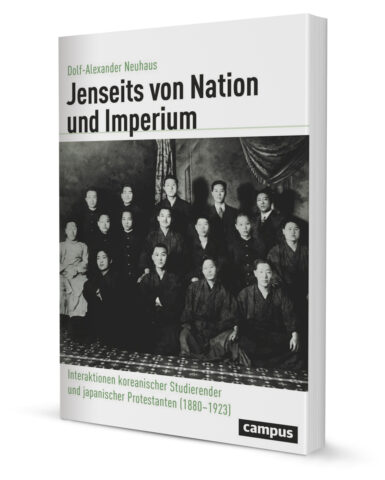Transregional actors across East Asia: Christianity, education, and independence movements
February 2024 - ongoing
Existing research has tended to subordinate colonial history in East Asia to the main narratives of Japanese imperial history, leaving little room for the agency of the colonized. Various actors such as students from Asian countries, Western missionaries, metropolitan Japanese intellectuals, and Asian independence activists, nevertheless, played pivotal roles in shaping the socio-political dynamics of the Japanese colonial empire and its enduring legacy after 1945. For example, students from colonized countries like Korea often served as conduits of new ideas and practices, while missionaries contributed to both educational and ideological exchanges, thereby offering, at least in the Korean case, an alternative route to convey modernity for the colonized population. This mediation created a “third space” that intellectuals and independence activists were able to navigate and on occasion could utilize to challenge asymmetrical power structures.
The project aims at uncovering the nuanced interactions that shaped the cultural and political landscape of colonial and post-colonial East Asia. It presents a corrective to the national history paradigm and the prevailing top-down approach to imperial history by pursuing an actor centered approach, which provides a multi-layered perspective on Japan’s regional entanglements that transcends Eurocentric models of modernization. Within this framework, the project investigates flows of knowledge and transregional entanglements and networks among various individual and group actors inside and outside the Japanese colonial empire.
Focusing particularly on the intersection of Christian missionary work, colonial education, and independence movements, the project examines how interactions between anti-colonial students, independence activists, Western missionaries, and Japanese intellectuals contributed to processes involving the production, dissemination, and consumption of knowledge. While stemming from very different social and individual backgrounds that reflected disparate positions of power, these actors at times could assume multiple roles simultaneously exhibiting overlapping identities and intersecting interests. These transregional actors helped to shape, and were themselves informed by, the historical context of imperialism, nationalism, and anti-colonialism. The project therefore strives to highlight the complexity of colonial and post-colonial identities and the centrality of East Asia to the intellectual history of the Meiji, Taishō and Shōwa periods, providing new insights into the broader impact of these interactions in Japan, East Asia, and the Asia-Pacific.

 Dolf-Alexander Neuhaus
Dolf-Alexander Neuhaus